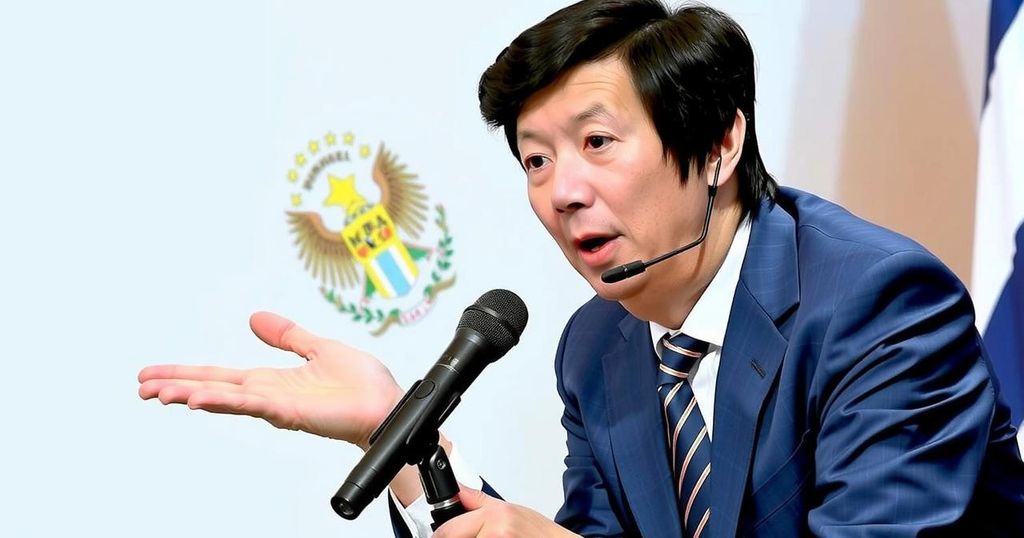Milei Initiates Audit of Foreign Ministry Following Controversial Vote on Cuba
President Javier Milei has initiated an audit of the Argentine Foreign Ministry, having dismissed Foreign Minister Diana Mondino for her vote against the U.S. trade embargo on Cuba. The administration is committed to rooting out diplomatic personnel who do not align with its agenda promoting freedom and condemning dictatorship. This policy shift aims to strengthen ties with the U.S. and Israel while distancing Argentina from its traditional support for leftist causes.
In a significant shift in foreign policy, Argentine President Javier Milei announced plans to conduct an audit of the Foreign Ministry personnel following the dismissal of Foreign Minister Diana Mondino. Mondino was removed from her position after she voted against the United States’ trade embargo on Cuba during a vote at the United Nations, where Argentina, alongside 186 other member states, supported lifting the longstanding embargo imposed since 1962. President Milei swiftly appointed Gerardo Werthein, Argentina’s Ambassador to the United States, as Mondino’s successor. The Milei administration stated its commitment to identifying and removing any diplomatic staff that promote agendas contrary to the principles of freedom. Specifically, the presidency issued a statement emphasizing its “categorical opposition” to the Cuban dictatorship and condemned all forms of regimes that infringe upon human rights and individual freedoms. This ideological realignment marks a departure from Argentina’s historical voting patterns against such embargoes. Notably, Milei’s government has faced internal tensions, primarily arising from its need to balance diplomatic relationships with the United States and Israel while garnering support from Cuba and its allies for Argentina’s claims regarding the sovereignty over the Malvinas Islands. Signals of these tensions were evident when Argentina voted against a UN resolution supporting Palestinian membership in May, with only nine nations rejecting the motion.
Argentina has historically maintained a pro-Cuba stance within the international community, often voting against the embargoes that target the Communist-run nation. This position reflects broader patterns of Latin American countries aligning with leftist movements and solidarity with Cuba. The recent actions by President Milei, who advocates for stronger ties with the United States and Israel, signify a clear pivot in Argentina’s foreign policy direction. Milei’s administration is conducting aggressive realignment efforts to dissociate from previous administrations’ policies, particularly as they relate to human rights and international alignments. This shift includes significant personnel changes within the Foreign Ministry and a call for alignment with his administration’s policies.
President Javier Milei’s decision to audit the Foreign Ministry and dismiss Foreign Minister Diana Mondino represents a dramatic reorientation of Argentina’s foreign policy towards aligning closely with the United States and Israel. With the actions taken against diplomatic staff who contradict the government’s stance on freedom and human rights, Milei is solidifying his administration’s commitment to this new alignment. These changes signify not only a departure from Argentina’s traditional positions but also an attempt to consolidate power within the government’s diplomatic corps.
Original Source: www.batimes.com.ar




Post Comment